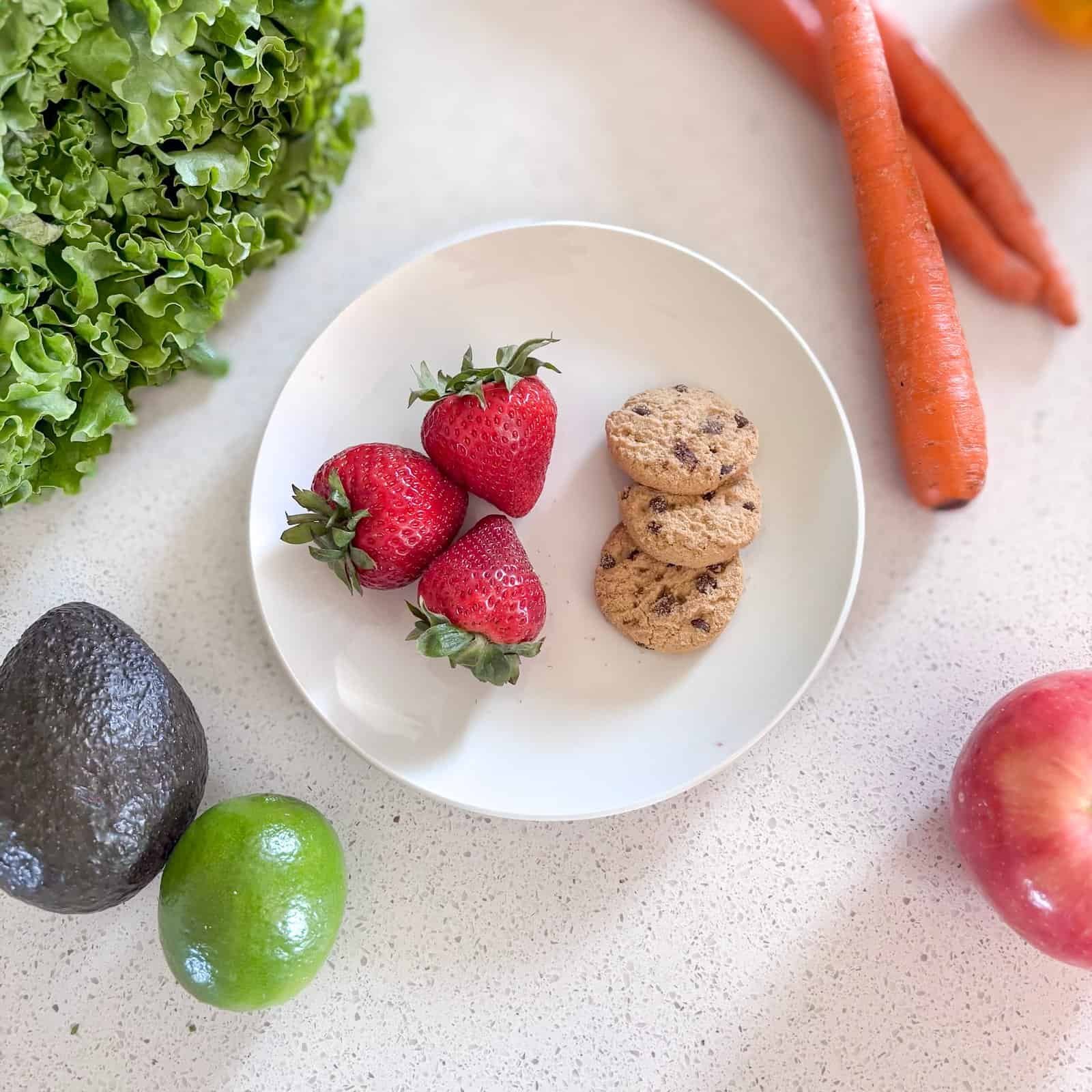I know the feeling when it’s 6:00 pm, you’re hungry and tired, and you have no idea what to eat for dinner. Add to this the thoughts that you probably shouldn’t go to a restaurant, get takeout or delivery, or pop yet another packaged meal into the microwave . . . again. And top both of those off with a dose of “but I really should have more vegetables today,” and you have a perfect situation for meal overwhelm.
It’s easy to fall into a rut of eating the same not-so-nutritious foods over and over. I used to default to that too. Sometimes I’d stand in front of my fridge not knowing what to whip up. The pressure is real!
As with so many things in life, having a plan increases your chance for success. Whether your success includes saving time and money, reducing food waste, managing an ongoing health concern, reaching a health goal, or maintaining a healthy weight, meal planning can help.
Meal planning is a simple concept that can help you effortlessly start eating healthier and even lose some weight. The easier your plan is, the more likely you are to stick with it. I am all about simplifying things and making goals attainable for those who are busy and on a time crunch. So, being able to enjoy meals that are simple, healthful—and delicious—is a win-win-win!

Before we talk about what meal plans are, let’s first see how they can help you realize success.
Healthy meal plans can make your life easier while saving you time and money
Do you love creating menus, choosing recipes, and making grocery lists to plan your food in advance? Or, are you part of the 40 percent of people who plan what you’re going to eat during that same day? No judgment from me! I have been in both shoes and can relate.
How often do you struggle to come up with a healthy, quick meal at the last minute, trying to figure out how to use those leafy greens so you can enjoy them and not have to throw them away before they go bad?
Here are the first few ways meal planning can improve your life. For one thing, having a meal plan can save you time: the time it takes to decide on a meal or recipe and the time to run out to pick up an ingredient or two at the last minute. Meal plans also help you to save money by sticking with your plan so that you only buy what you need on your customized grocery list. Plus, you won’t have to throw out as much wasted food at the end of the week because all of it will be accounted for in your meals.
Meal planning can help you eat more nutritiously
What inspires you to eat more nutritious foods? Is it your personal recipe repertoire? The ingredients you happen to come across while grocery shopping?
You already know that getting all of your vitamins, minerals, and other essential nutrients can help you reach your health goals. Maybe you also need a low-sodium diet to reduce your blood pressure. Perhaps you need gluten or allergen-free foods to reduce your reactions. Or maybe you need to focus on managing your blood sugar or heart health.
Whether you have a condition that you want to manage better with food, or whether you have health goals you want to achieve, having healthy meal plans makes all of those more achievable.
Several studies have shown that people who use healthy meal plans tend to cook their own meals and improve the nutritional quality of their diet. In fact, people who use meal plans tend to follow dietary guidelines more closely, eat a wider variety of foods, and consume more fruits and vegetables.
We know that pre-made, pre-packaged, processed foods are quick and easy, but they’re often low in fiber and nutrients, while also being high in salt, sugars, and unhealthy fats. When you create a meal plan based around more nutritious and less-processed foods, you can easily replace some of the not-so-healthy convenient options with those that are more healthful.
Meal planning can help you maintain a healthy weight
It’s true! Meal planning is associated with lower risk for obesity.
Studies show that people who create meal plans are less likely to experience obesity than those who don’t. This means that meal planning is one way to reduce your risk for obesity in the future. How? Healthy meal p/lans give you control over your ingredients, cooking methods, and portion sizes.
Meal planning is also associated with weight loss.
We all know that losing excess weight is hard! One of the factors that we can control—but is very difficult to sustain—when it comes to losing weight and keeping it off is consistently eating healthier over the months and years. And meal plans can certainly help here as well.
One recent study tried to help people lose excess weight by teaching them to plan their meals. The researchers found that people who planned their meals more often lost more weight than those who didn’t plan their meals as often.
As you can see, healthy meal plans can help:
- make your life easier
- save you time and money
- you reach your health goals
- lower your risk for obesity
- you lose weight.
So, what exactly is a good meal plan?
Features of a Healthy Meal Plan
A healthy meal plan will consist of a few different parts:
- Health-promoting meals and snacks
- Simple recipes
- Grocery list
- And if you need accountability, a nutrition coach

Final thoughts
Deciding what to eat, which recipe to use, and what groceries you need are great features to have planned out in advance for your busy day-to-day life. Imagine having a nutrition coach who not only makes eating more nutritious food easier but also helps you achieve and sustain your health goals through proper nutrition.
Now that you know all of the benefits of meal planning, you may be wondering how to get started. Whether you want to reach a health goal, maintain a certain weight, or simply make your life easier, consult a nutrition coach who can help.
Want help to ensure your food choices are nutritious and reduce wasted food (and money)? Need support to reach your health and weight goals effectively? Book an appointment with me today to see if my program can help you.





Comments
No Comments